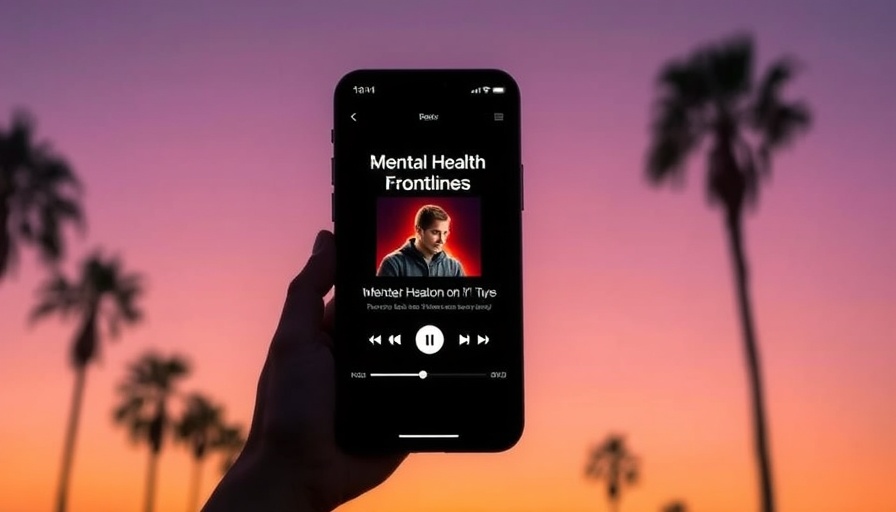
Understanding The Humanitarian Mental Health Crisis
In Los Angeles, a city marred by the harsh reality of homelessness, over 75,000 individuals are struggling to survive on the streets, facing daily threats to their health and wellbeing. The plight of these individuals is not merely a local concern but a profound humanitarian crisis that demands our attention. The Los Angeles County Department of Mental Health (LACDMH) has responded with innovative initiatives focused on addressing mental health needs on the frontlines.
A Revolutionary Approach: Street Psychiatry
The HOME (Homeless, Outreach, Mobile, Engagement) Team initiative is a pioneering model of street psychiatry that has been heralded as a 'radical solution' by advocates and practitioners alike. This program operates like an outdoor emergency room, bringing vital psychiatric care directly to those who need it most—individuals suffering from severe mental illnesses who often find themselves disconnected from traditional health services.
Aubree Lovelace, Chief Administrator of the HOME Team, shares insightful anecdotes from the field, illustrating the necessity of immediate intervention and support. Traditionally, individuals living with untreated mental health issues can face a dismal cycle of hospitalizations, legal troubles, and further disconnection from society. By treating these individuals on the streets, the HOME Team not only provides immediate relief but also paves the way for long-term recovery strategies, which include stabilization, housing placement, and family reunification.
The Impact of Compassionate Care
The approach taken by Dr. Shayan Rab and his colleagues has proven transformative. Dr. Rab describes his role as 'majestic,' emphasizing the dignity of the lives they aim to save. By building trust within the unhoused community who are often wary of formal healthcare systems, the HOME Team fosters relationships essential for effective treatment and rehabilitation.
In Episode #10 of the podcast series, Dr. Rab discusses how trust lay at the foundation for successful psychiatric interventions. Initial connections made on the streets evolve into comprehensive recovery journeys, underscoring the importance of compassionate care tailored to the unique circumstances of each person.
Community Involvement and Growth
The success of the HOME Team has catalyzed its expansion over the years, growing from a single psychiatrist to a robust team of 17 psychiatrists and over 200 support staff. Such an increase not only enhances the reach of services but also exemplifies how collective action can address systemic issues effectively.
Financial Benefits of Investing in Mental Health
There is a significant financial upside to the successful implementation of programs like the HOME Team. Reducing emergency hospital visits, lengthy stays, and legal adjudication for mental health crises saves taxpayer dollars and reorients resources towards more proactive solutions. As the team works diligently to stabilize patients’ conditions, they help curb the costly ripple effects associated with untreated mental illness.
Future Directions and Community Support
As the series progresses, new discussions will highlight ongoing challenges and potential expansions for the program. It’s necessary for the community to remain involved and support such mental health initiatives. By fostering awareness and understanding of the importance of mental health care within the homeless population, we encourage more effective interventions and advocate for systemic changes within our health and social services.
The Importance of Advocacy and Awareness
This podcast series serves not only as an informative resource but as a clarion call for greater awareness and advocacy around mental health issues. For residents of Bakersfield and beyond, engaging with this content can lead to enhanced community involvement and support for vulnerable populations. As we take steps to learn and understand, we can all contribute to the movement toward improved mental health care and solutions.
In conclusion, as we listen to these compelling narratives shared by the HOME Team on the Mental Health on the Frontlines podcast, let’s commit to being part of the solution. Increased awareness can catalyze change, ensuring that mental health care becomes a right, rather than a privilege, especially for those living on the margins of society.
 Add Row
Add Row  Add
Add 



Write A Comment